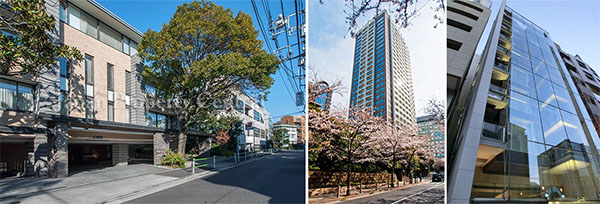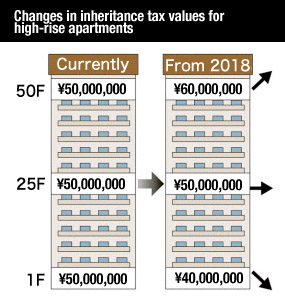Residential yields in Minato-ku - March 2016

According to real estate listing site Homes, the average gross yield on an apartment in Minato-ku in Tokyo was 4.5% in March, down 0.1 points from the previous month and down 0.5 points from last year. The average yield across Tokyo was 6.2%, showing no change from last month but down 0.4 points from last year.
The average asking price of a second-hand apartment in Minato-ku was 905,771 Yen/sqm, down 0.1% from last month but up 1.7% from last year. The average asking price for land was 1,370,606 Yen/sqm, down 1.1% from last month but up 9.9% from last year.Read more
Earthquake insurance in Japan
 If you own real estate in Japan, you may with to obtain optional earthquake insurance to provide some coverage against earthquake damage. Earthquake insurance payouts from the 2011 Tohoku disaster totalled 1.3 trillion Yen. Not only were homes lost or damaged from the shaking, but fires and the devastating tsunami caused significant damage.
If you own real estate in Japan, you may with to obtain optional earthquake insurance to provide some coverage against earthquake damage. Earthquake insurance payouts from the 2011 Tohoku disaster totalled 1.3 trillion Yen. Not only were homes lost or damaged from the shaking, but fires and the devastating tsunami caused significant damage.
If you are a property owner, the main type of insurance is fire insurance. However, ordinary fire insurance does not provide coverage against tsunamis or fires caused by an earthquake. For coverage against earthquakes, a property owner must obtain an additional earthquake insurance policy on top of their fire insurance.
Earthquake insurance premiums are generally the same regardless of the insurance company. Fees will vary, however, depending on the type of construction, size of the property, and where the property is located, as some areas have been assigned higher risk levels than others.Read more
Tokyo Apartment Sales in February 2016

The following is a selection of apartments that were sold in central Tokyo during the month of February 2016:Read more
One of Tokyo's oldest Ryokans to be demolished this year

One of Tokyo’s older ryokans (traditional Japanese inns) is set to close at the end of March, ending 112 years of operations. Choyokan-honke is located in Hongo, Bunkyo-ku - an area that was once bustling with ryokans and old bathhouses. During the 1920s there were over 120 ryokans in the neighbourhood, but by the 1960s the number had dropped to around 50.
The building is schedule to be demolished in the summertime. It will then be replaced with a high-rise condominium.Read more
Tax Agency to crack down on high-rise apartment sales
 The National Tax Agency and the Ministry of Internal Affairs and Communications are considering introducing changes to the tax valuation of apartments in high-rises to counter-act a growing trend of wealthy Japanese buying up apartments on high floors to reduce their inheritance taxes. Changes could be introduced from as early as 2018.
The National Tax Agency and the Ministry of Internal Affairs and Communications are considering introducing changes to the tax valuation of apartments in high-rises to counter-act a growing trend of wealthy Japanese buying up apartments on high floors to reduce their inheritance taxes. Changes could be introduced from as early as 2018.
When calculating inheritance taxes, assets such as cash and shares are valued based on their face value, while real estate is valued based on its ‘rosenka’ tax value which can be much lower than the actual market value.
For apartments in a high-rise building, the tax value is currently based on both the size of the apartment and the rosenka value of the small share of land. Tax values do not take into account the floor, views or facilities, so an apartment on the 2nd floor would have the same tax value as an apartment on the top floor, assuming they are the same size. The top floor unit, however, has a market value much higher than the lower floor unit.Read more
Japan's population continues to concentrate in Tokyo area
According to the latest National Census data released on February 26, Tokyo’s metropolitan area recorded a 2.69% increase in population. 39 of Japan’s 47 prefectures saw a decline in population, including Osaka prefecture, as the population continues to concentrate in the Tokyo area.
Japan remains ranked in 10th position for the most populated countries in the world. In terms of population density, Japan is ranked 9th with 341 people per square kilometre.
Tokyo
The population in the Tokyo metropolitan area was 13.51 million in 2015. In the greater Tokyo area (which may include Tokyo, Kanagawa, Chiba, Saitama, Gunma, Tochigi and Ibaraki), the population increased by 1.4% to 36.13 million residents. 28.4% of Japan’s population is now concentrated in the greater Tokyo area, an increase of 0.6 points from 2010.Read more
Japan’s house price index for November 2015

On February 24, the Ministry of Land, Infrastructure, Transport and Tourism released the latest residential price index for Japan.
The nationwide price index for apartments was 123.5, up 8.1% from November 2014. This is the 33rd consecutive month to record a year-on-year increase.Read more
